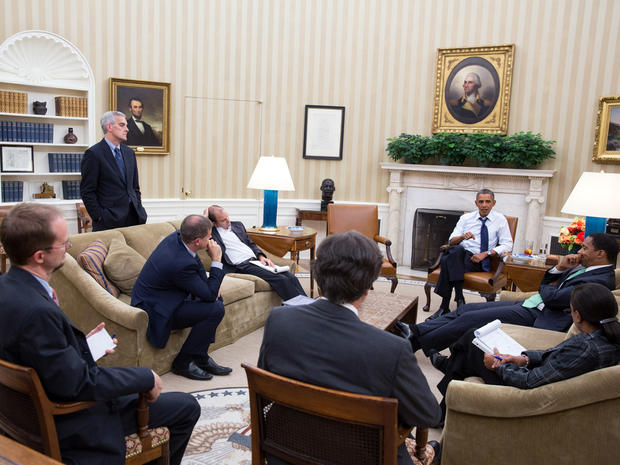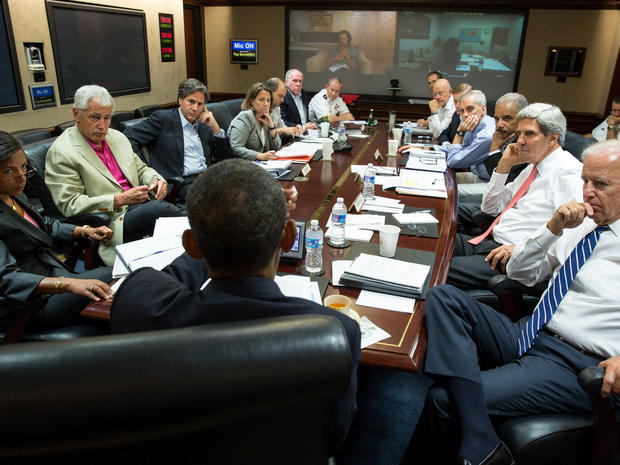Obama's Syria strike decision aims to get Congress on the record
(CBS News) WASHINGTON - President Obama spoke to the American people from the Rose Garden Saturday afternoon, pressing his case for military action against the Syrian regime and calling the chemical attack that claimed more than 1,400 lives in Syria 10 days ago "a menace that must be confronted."
But the president also made it clear he does not want to proceed alone and will seek authorization and support for a limited strike from Congress.
The president's decision to take this to Congress came as a surprise even to his own advisers.
The president called them into the Oval Office Friday night to tell them two things: that he's now decided to use military force, but also that he was reversing course and would seek congressional approval.
His reasoning, according to officials who were in the room? He wants members on the record, rather than simply criticizing from outside whatever action he takes.
"After careful deliberation, I have decided that the United States should take military action against Syrian regime targets," Mr. Obama said. "This would not be an open-ended intervention. We would not put boots on the ground. Instead, our action would be designed to be limited in duration and scope."
(At left, watch a report from CBS News congressional correspondent Nancy Cordes on the reaction from Capitol Hill)
Senior officials say that in an Oval Office meeting Friday night, Mr. Obama pointed to the British Parliament's decision earlier this week not to join in a U.S. strike as a reason to seek broader approval by taking the issue to Congress. He will spend the next 10 days making his case to the members.
"Here's my question for every member of Congress and every member of the global community: What message will we send if a dictator can gas hundreds of children to death in plain sight and pay no price?" Mr. Obama said.
On Saturday morning, the president held a two-hour meeting in the White House Situation Room. Aides said there was some debate over the risks of waiting to act, but the president determined that the U.S. must strike because he believes that U.S. national security interests are at stake.
"Make no mistake," said Mr. Obama. "This has implications beyond chemical warfare. If we won't enforce accountability in the face of this heinous act, what does it say about our resolve to stand up to others who flout fundamental international rules, to governments who would choose to build nuclear arms, to terrorists who would spread biological weapons, to armies who carry out genocide?"
The president says he's been assured by the chairman of the Joint Chiefs of Staff that postponing a military strike is not a problem. He knows, he says, that Americans are weary of war but that the U.S. must not turn a blind eye to the chemical attack in Damascus.
White House officials say they are confident that Congress will authorize limited use of force, but the president also insisted Saturday that he has the authority to act alone, and, of course, if Congress does turn him down he'll be able to blame them for whatever comes next.

